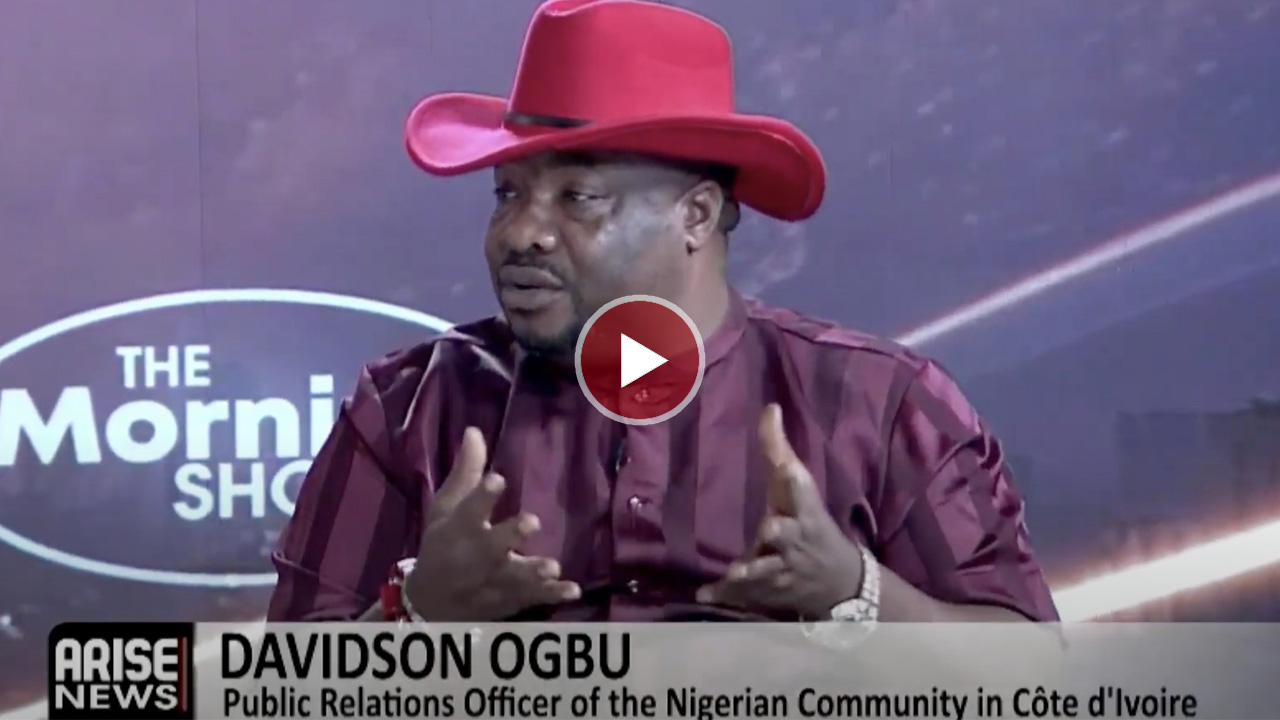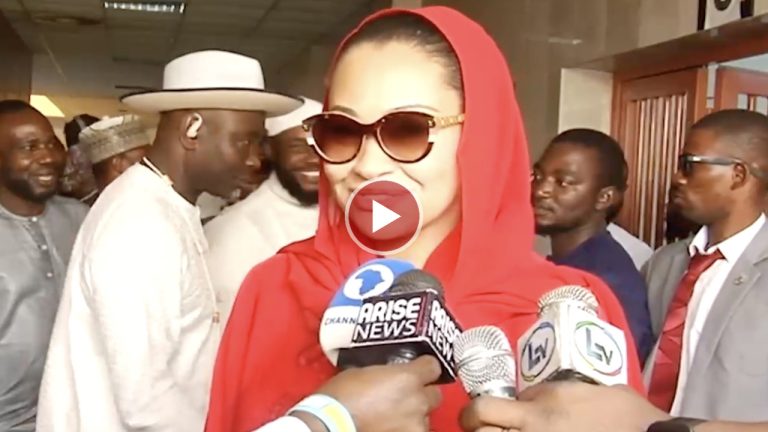
The Public Relations Officer of the Nigerian Community in Côte d’Ivoire, Davidson Ogbu, has accused the Nigerian government and its diaspora agencies of failing to protect citizens trapped in human trafficking networks across West Africa, despite repeated cries for help.
In an interview with ARISE NEWS on Friday, Ogbu spoke emotionally about the gruesome murder of a young Nigerian girl, identified as Destiny, who was trafficked from Delta State to Côte d’Ivoire and killed under mysterious circumstances, describing the killing as one of the darkest moments for Nigerians living in the country.
“Her name is Destiny. She was murdered in cold blood,” Ogbu said. “The murder shocked the whole of Côte d’Ivoire. Such a gory, horrific image from what we saw from the scene of the murder.”
He explained that Destiny’s death had once again drawn attention to the persistent and devastating problem of child and sex trafficking involving Nigerian minors across the region.
“This is just an underage girl that was trafficked to Côte d’Ivoire for prostitution,” he said. “We’ve been doing all we can, but they keep coming, they keep coming. There’s no way you can stop this completely.”
According to Ogbu, the Nigerian community in Côte d’Ivoire has led a series of voluntary rescue and repatriation operations since 2020, working tirelessly to bring home trafficked girls.
“We have repatriated over 1,800 to about 2,000 girls in the past three years,” he disclosed. “Underage girls, girls below 16, 14, 13, even 10. We’ve seen girls aged 10 being trafficked into the country.”
He said despite these humanitarian efforts, Nigerian authorities have shown little tangible support or coordination, leaving community members to bear the burden of rescue operations financially and emotionally, particularly critical of the Nigerians in Diaspora Commission (NiDCOM) and the Nigerians in Diaspora Organisation (NIDO), saying both have failed to provide the level of intervention expected of them.
“With all due respect, if I want to talk of NiDCOM or NIDO, they’re not doing their job,” he stated. “We expect more from organisations taking care of Nigerians in the diaspora. Sometimes I feel they come after the medicine, after death. They are not proactive.”
Ogbu said the community had reported Destiny’s murder and other trafficking incidents to the Nigerian Embassy in Abidjan, which has been cooperating with Ivorian police on the case. “We work with the Nigerian embassy in Ivory Coast. They are aware of this case and the murder,”Ogbu said. “The embassy and Ivorian police are on top of the case, and we hope that Destiny gets justice.”
However, he asserted that no response or official statement had been issued by NiDCOM Chairperson Abike Dabiri-Erewa, despite the gravity of the situation. “Madam Abike Dabiri has not been officially briefed as far as I know,” he said. “This is the life of a Nigerian we’re talking about. Nothing has been heard from her side, no response, nothing.”
He went further to call for leadership renewal at NiDCOM, suggesting that the agency had become stale and disconnected from the realities Nigerians in the diaspora face. “With all due respect, I think Madam Abike Dabiri has been there for too long. “We need the NIDO community to be refreshed. Let’s have new people with new ideas. It shouldn’t take social media influencers like VeryDarkMan to get the government’s attention.”
Ogbu also revisited a long-standing grievance the failure of the Nigerian government to reimburse funds spent by the Nigerian community in Côte d’Ivoire during previous repatriation exercises. “The Nigerian community, both in Ivory Coast, Ghana, and all within West Africa, have been spending a whole lot of money trying to repatriate these young girls,” he said. “The authorities promised they would reimburse us, but up till now, nothing has been heard.”
He questioned the role of Nigerian institutions like the National Agency for the Prohibition of Trafficking in Persons (NAPTIP) and the Nigeria Immigration Service (NIS) in curbing the transnational trafficking syndicates operating freely within the region. “Where are our immigration officers and government agencies when these things happen?” Ogbu asked. “We can’t keep doing this alone. We need action, not promises.”
Despite the lack of government response, Ogbu commended a few individuals who have stepped in to assist. He singled out Nigerian activist VeryDarkMan, whose visit to Côte d’Ivoire reportedly helped attract media attention and spur limited intervention from local authorities.
“If not for VeryDarkMan, who visited Ivory Coast, we would not have been able to get the kind of assistance we received last time,” Ogbu noted. “He did much more than Abike Dabiri, with all due respect.”
He stressed that the community’s fight is not just about Destiny’s death but about dismantling a deep-rooted trafficking network that continues to exploit vulnerable Nigerian girls across West Africa. “We are doing all we can to collaborate with Ivorian authorities to make sure Destiny gets justice,”Ogbu said. “But beyond that, we need to protect our girls before they end up like her.”
Ogbu concluded with a call to the Nigerian Senate and executive authorities to prioritise the safety of citizens abroad and reform agencies responsible for diaspora welfare and anti-trafficking enforcement. “We can’t have Nigerians dying abroad and leaders pretending not to see. Justice for Destiny must not just be a slogan it must be action.”
Erizia Rubyjeana


